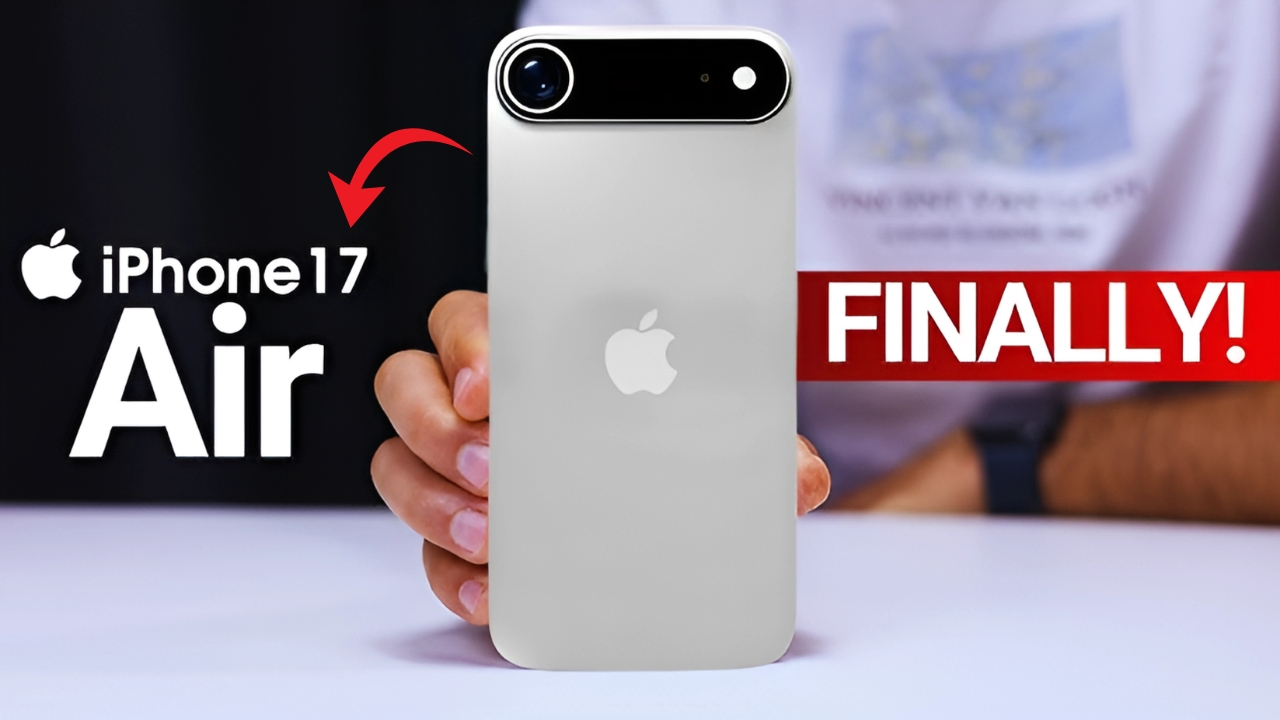Apple is preparing to revolutionize smartphone design once again with the highly anticipated iPhone 17 Air, expected to launch in September 2025. This groundbreaking device represents the most significant design change to the iPhone lineup in years, prioritizing unprecedented thinness while maintaining the functionality users expect.
What Makes the iPhone 17 Air Special
The iPhone 17 Air will measure just 5.5mm at its thinnest point, making it the slimmest iPhone ever created. This dramatic reduction in thickness comes from Apple’s commitment to pushing engineering boundaries, though it requires some thoughtful compromises that actually benefit everyday users.

Display and Visual Experience
The device features a generous 6.6-inch OLED display with ProMotion technology supporting up to 120Hz refresh rate. This means smoother scrolling, more responsive gaming, and better video playback compared to standard models. For the first time, ProMotion technology will extend beyond Pro models, bringing premium display features to more users.
Camera System Designed for Simplicity
Due to space constraints from the ultra-thin design, the iPhone 17 Air includes a single 48-megapixel Wide camera. While this might seem limiting, it actually simplifies photography for users who prefer straightforward picture-taking without complex camera systems. The front-facing camera receives an upgrade to 24 megapixels, significantly improving selfie quality and video calls.
Technical Specifications and Performance
| Feature | Specification |
|---|---|
| Thickness | 5.5mm (thinnest point) |
| Display Size | 6.6-inch OLED |
| Refresh Rate | 120Hz ProMotion |
| Main Camera | 48MP Wide |
| Front Camera | 24MP |
| Expected Price | $899 |
| Battery | ~2,800mAh |
| 5G Modem | Apple-designed |
Revolutionary Engineering Choices
The iPhone 17 Air will feature a titanium frame despite aluminum being lighter, suggesting Apple prioritizes durability in this ultra-thin design. To achieve the desired thickness, the device may ship without a physical SIM slot, relying entirely on eSIM technology.
Connectivity and Future Technology
The iPhone 17 Air will be among the first to use Apple’s custom-designed 5G modem chip, capable of theoretical download speeds up to 4Gb/s. All iPhone 17 models will feature Apple’s first custom Wi-Fi chip with Wi-Fi 7 support, providing faster speeds and better energy efficiency.
The Federal Communications Commission (FCC) regulates all mobile devices for safety, ensuring they meet strict radiofrequency exposure limits of 1.6 watts per kilogram.
Battery Life Considerations
Battery capacity is expected around 2,800mAh, which is smaller than typical for modern smartphones. However, Apple’s focus on efficiency through the A19 chip and optimized software should maintain all-day battery life for most users.
Market Position and Pricing
The iPhone 17 Air will replace the Plus model in Apple’s lineup, priced at $899. This positions it as a premium option for users who value design innovation over maximum features, similar to how MacBook Air serves users who prioritize portability.
Frequently Asked Questions
Q: When will the iPhone 17 Air be available?
A: Apple typically announces new iPhones in September, with the iPhone 17 Air expected to debut between September 8-12, 2025.
Q: Will the thin design make it fragile?
A: Apple is using a titanium frame specifically to ensure durability despite the ultra-thin profile.
Q: Can I use my existing phone plan?
A: Yes, though the device may rely on eSIM technology, which all major carriers support.
The iPhone 17 Air represents Apple’s vision for the future of smartphone design, where advanced engineering creates devices that feel almost impossibly thin while maintaining the reliability and functionality users depend on daily.
Samsung’s Latest Innovation: Transparent Mobile with Elite Camera and Stylish Build
